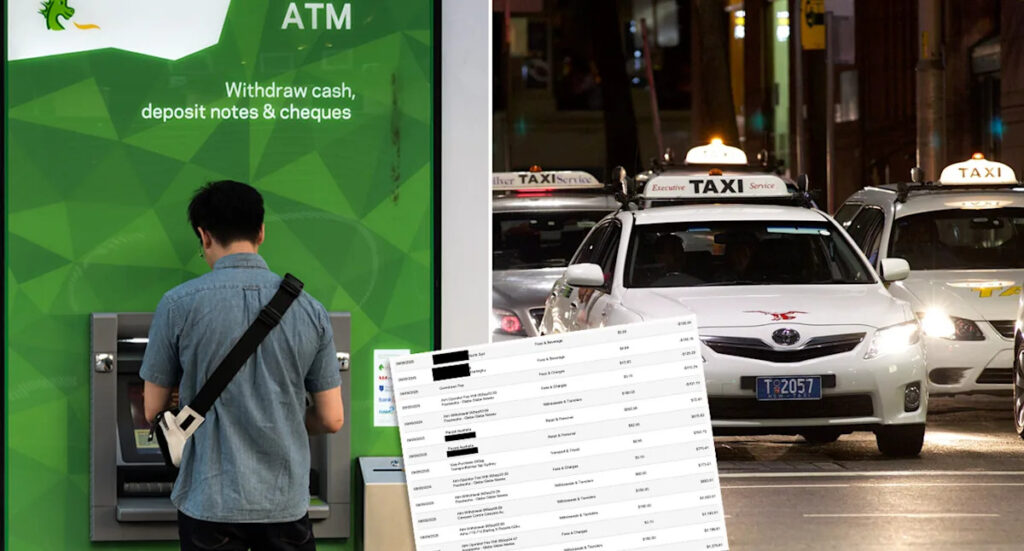
An Australian traveler is sounding the alarm after an unsettling experience following a taxi ride from Sydney Airport. Chris, who has asked for his last name to be withheld, claims his bank card was “skimmed” by the taxi driver, leading to nearly $800 being withdrawn from his account in a series of unauthorized transactions. This incident serves as a stark reminder of the risks associated with card skimming, a problem that has intermittently troubled the taxi industry.
The incident occurred when Chris opted for a taxi instead of his pre-booked Uber at Sydney Airport. Upon reaching his home in northern Sydney, the taxi driver informed him that the payWave function on the payment terminal was malfunctioning, necessitating the physical insertion of a card. Chris, who typically does not carry cards, had to retrieve one from inside his home to complete the payment.
“Less than 12 hours later, suspicious transactions started appearing,” Chris recounted to Yahoo News. “I wasn’t able to stop the transactions, I didn’t even realize what was happening until Tuesday.” He suspects the skimming occurred when he handed his card to the driver. A bank statement revealed multiple cash withdrawals, ranging from $150 to $190, from ATMs in areas like Glebe, Rozelle, and Campsie.
Card Skimming: A Persistent Threat
While card skimming incidents in taxis are relatively rare, they are not unheard of. The latest case has prompted the peak NSW body to remind passengers to exercise caution. Historically, the taxi industry has faced similar challenges. In 2014, four drivers were arrested in Sydney for card skimming, and a major crackdown in 2017 saw NSW Police, banks, and other organizations target fraudulent activities involving altered EFTPOS machines.
“We have zero tolerance for this,” NSW Taxi Council CEO Nick Abrahim stated. “It’s fraudulent behavior and should be treated accordingly.”
Abrahim emphasized the importance of vigilance, advising passengers to keep their cards in sight during transactions. Although he hasn’t received recent reports of skimming, he acknowledged its occurrence and encouraged reporting such incidents to authorities.
Response and Repercussions
Chris has reported the incident to his bank, St George, which has opened a fraud case. However, he was informed that recovering the funds could take over 40 days. The NSW Taxi Council, in response to ongoing concerns about driver misconduct, recently unveiled a four-point plan to address “rogue” behavior, including increased penalties for overcharging and stricter oversight of drivers.
According to Abrahim, “We need to send a stronger message to those drivers who are overcharging passengers and who are undoing the great work of the majority in our industry.”
The plan aims to deter misconduct by raising penalties for fare-related offenses and improving industry oversight. Passengers with complaints are encouraged to contact the Point to Point Transport Commissioner’s Fare Related Hotline.
Looking Forward: A Call for Vigilance
Chris hopes that nearby businesses may have CCTV footage to help identify the taxi and driver involved in the incident. He recalls the interaction with the driver as civil and pleasant, noting that the malfunctioning payWave did not initially raise suspicion. However, the experience has left him frustrated and wary.
For travelers, this incident underscores the importance of remaining vigilant when handling payment transactions. The NSW Taxi Council and law enforcement continue to work towards preventing such fraudulent activities, but passengers are urged to report any suspicious behavior to the police and relevant authorities.
Do you have a story about dodgy taxi or rideshare behavior? Email: [email protected]






